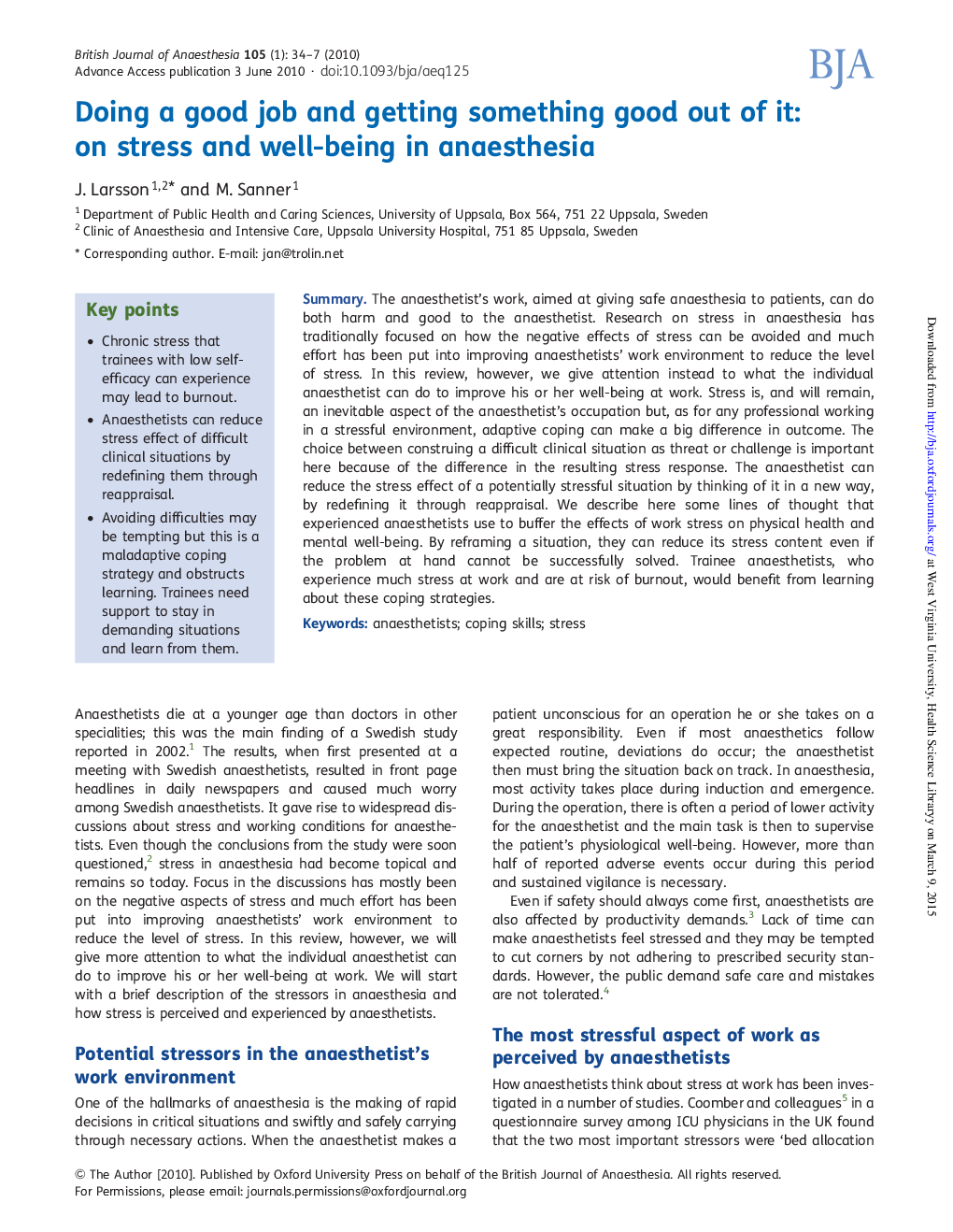| Article ID | Journal | Published Year | Pages | File Type |
|---|---|---|---|---|
| 8936570 | British Journal of Anaesthesia | 2010 | 4 Pages |
Abstract
The anaesthetist's work, aimed at giving safe anaesthesia to patients, can do both harm and good to the anaesthetist. Research on stress in anaesthesia has traditionally focused on how the negative effects of stress can be avoided and much effort has been put into improving anaesthetists' work environment to reduce the level of stress. In this review, however, we give attention instead to what the individual anaesthetist can do to improve his or her well-being at work. Stress is, and will remain, an inevitable aspect of the anaesthetist's occupation but, as for any professional working in a stressful environment, adaptive coping can make a big difference in outcome. The choice between construing a difficult clinical situation as threat or challenge is important here because of the difference in the resulting stress response. The anaesthetist can reduce the stress effect of a potentially stressful situation by thinking of it in a new way, by redefining it through reappraisal. We describe here some lines of thought that experienced anaesthetists use to buffer the effects of work stress on physical health and mental well-being. By reframing a situation, they can reduce its stress content even if the problem at hand cannot be successfully solved. Trainee anaesthetists, who experience much stress at work and are at risk of burnout, would benefit from learning about these coping strategies.
Keywords
Related Topics
Health Sciences
Medicine and Dentistry
Anesthesiology and Pain Medicine
Authors
J Larsson, M Sanner,
